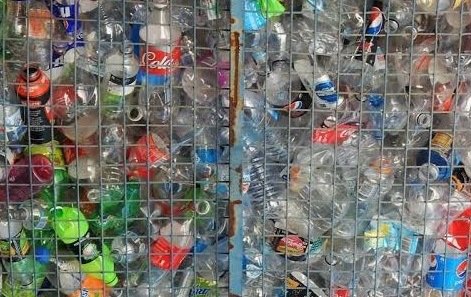WHY PLASTIC BAGS SHOULD BE BANNED
Plastic bags are everywhere in our environment. When we go to purchase our groceries, we use plastic bags because they are convenient. In fact, in our modern lifestyle, it has become part of us. However, the conveniences of these plastic bags come at a very high cost to the environment and negatively affect human health safety. Several cities globally have begun banning the use of plastic bags while some have enforced restricted laws against the use of plastic bags because of the negative effect of the use of their usage.
Besides, the use of plastic bags is considered as one of the great issues that humans are facing in their contemporary life. The China has banned the use of plastics. Bangladesh and India has only banned the use and sale of polythene bags which basically have thickness of less than 50 microns.
Below are the reasons for banning of those plastic bags:
- The plastic bags are made from non-renewable sources and on this account, highly contribute to climate change. Most of plastic is made of polypropylene which is a material manufactured from petroleum and natural gas. All of the materials are non-renewable fossil fuel-based materials and through their extraction and even production, greenhouse gases are created which further contribute to global climate change.
- Plastic bags do not degrade. In truth, petroleum based plastic bags never degrade. Instead of the plastic degrading, it is broken down into small tiny pieces which are swept down and end up in the oceans which are then consumed by wildlife.
- Plastic bags do not only pollute our water but also our land. Plastic bags are usually lightweight and as such, they can travel very long distances by either water or wind. Wind blows these plastic bags and trashes a whole area. These litters gets caught up in between trees, fences and oats in water bodies thus moving to the world’s oceans.
- A lot of energy is used in producing these bags. The total amount of energy required driving a car for one kilometre or 0.5 miles is the equivalent energy required to produce nine plastic bags. It is not rational that these non-renewable resources are used to make plastic bags when the typical useful life of each and every plastic bag is around 12 minutes.
- Plastic bags are harmful to human health. There are some chemicals from the plastic bags which can disrupt the normal functioning of hormones in the body. Most plastic fragments in the oceans like plastic bags have some pollutants such as PCBs (polychlorinated biphenyl) together with PAHs (Polycyclic aromatic hydrocarbons) which are hormone disrupting. Once the marine animals consume these chemicals, they move through the food web then later into the humans who consume fish together with other marine animals. The chemical materials bio accumulates in the sea animals and fish system as they are exposed to them in the ocean waters. When the humans prepare them they consume all these chemicals affecting their health. They could develop cancers or other serious conditions.
- Plastic bags are harmful to wildlife and marine life. Birds, animals and marine life such as sea turtles and fish often mistake the plastic bag and other plastic materials for food and consume them. What happens once they consume these plastic materials is that their digestive system gets congested leading to the development of health infections and death when there is suffocation. The animals may also become easily entangled inside the plastic.
- Plastic bags are not easy to recycle. Plastic bags are said to present significant challenge in terms of recycling. Recycling facilities do not have the capacity to recycle plastic bags and thus do not accept them. Therefore, the actual recycling rate for plastic bags is around 5%.
- Plastic bags are expensive and hard to clean or remove from the environment. The amount of plastic bag cleanup is around 17 cents per bag thus in average the taxpayers end up paying around $88 each year just on plastic bag waste. These plastic bags also cost 3-5 cents each. Thus, the plastic considered free is not free after all. Individuals pay a lot to purchase them and even for reusing them. For this reason, plastics should simply be banned.
- Bans should be adopted because they are greatly effective at reducing plastic big waste. China banned plastic bags and four years later, the amount of plastic bags thrown into the environment had reduced by 40 billion. If the US bans plastic bags, there would be fewer landfills.
- Plastic bags help keep our streets clean. Most of our cities are not clean especially Indian and most African country streets because people don’t care to know where they throw their garbage. They do it in water bodies, streets and in the landfills. These wastes litter our streets making them look ugly affecting their aesthetic value.
- It helps spread awareness. When we ban plastic bags, we keep our environment clean and at the same time send some message globally about the importance of environment protection. People learn that banning plastic is for a reason and they can take up such important information. They can subsequently begin to understand that the plastic causes some negative effects and the environment and humans need protection against them.
- Banning plastic bags helps save money. These plastics cost a lot of money because the final costs account for the total production costs from their manufacture using petroleum to when they will be thrown away.
- People can option for manufacturing reusable bags so that they create products which are sustainable. Manufacturing reusable bags will create new job opportunities in terms of green manufacturing, research and processing of packaging products.
- More nations are banning the use of plastic because they have noticed that it is causing harm to the environment and human health. Currently, over 40 nations together with municipalities around the globe have instituted plastic bag bans. Other nations should follow suit to reduce the overall environmental implications.
- Through the banning of plastic, cities in various nations can begin to focus on other bigger waste diversion challenges. Cities have had set targets that they are supposed to achieve like in Toronto, Canada where the city council is required to achieve 70% waste diversion by 2010. People cannot achieve the set target because most households do not have green bins. If there is plastic bag bans then city council can place their focus and attention on getting green bins to various apartment buildings and then meeting waste diversion targets.




